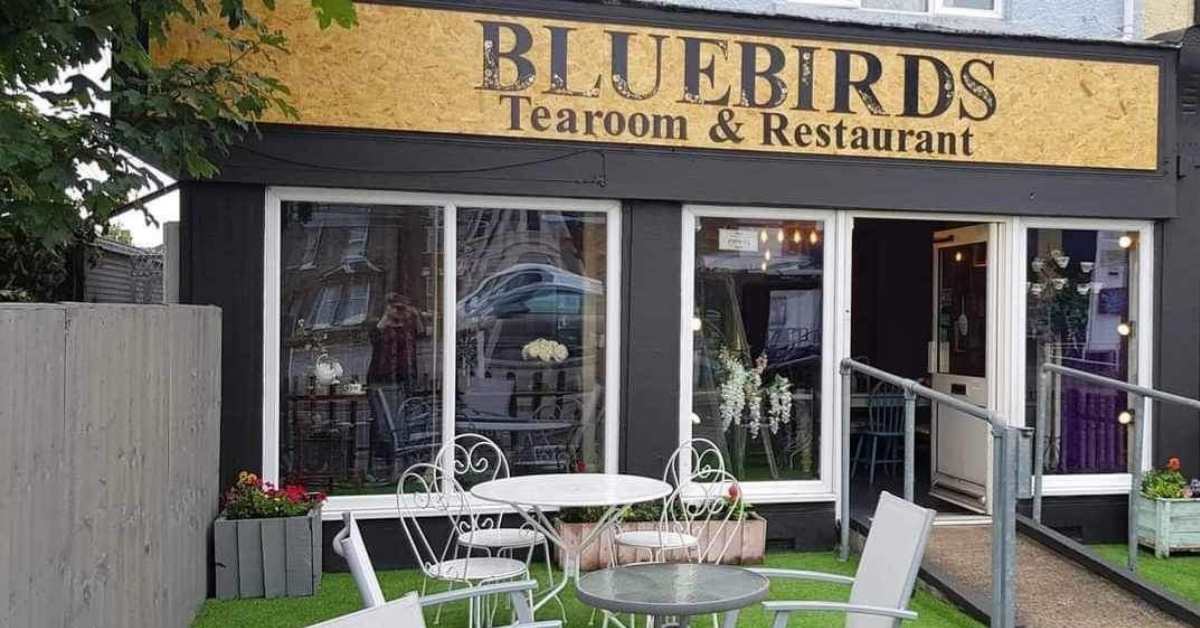Essex Cafe Owner Ignites Heated Global Debate Online as Young Boys Leave Heartfelt Note After Meal
An Essex cafe owner has taken the internet by sharing the heartwarming story of two young boys who left a touching note after their meal, triggering an unexpected and vigorous debate on social media.
Laura Sheffield, hailing from Essex, was amid a bustling Saturday shift at her quaint tea room when the two youngsters entered and placed their food orders.
After savoring their meal, they left a generous £3.92 as a tip, along with a handwritten note.
The note read: “Thank you so much, the service was excellent, and the food was delicious,” leaving the 60-year-old Laura deeply moved.

Subsequently, Laura took to Facebook to recount this heartwarming experience, unwittingly sparking a heated online discussion between American and British netizens,
amassing over 476,000 likes and 25,900 comments, with users voicing their opinions on “the younger generation.”
“While the majority of the comments were positive, we were taken aback by the unexpected international debate that ensued, particularly concerning cursive writing and the U.S. education system,” Laura shared with Absolutely Busines
“Their £3.92 tip was a lovely gesture, but the note itself truly resonated with us. We were astounded by the response.”
Some individuals questioned the note’s authenticity due to its cursive script, prompting Americans and Brits to engage in a spirited exchange in the comment section.
One skeptic commented, “I’m skeptical of this story; a 12-year-old doesn’t write like that.”
Another person added, “For starters, no 12-year-old writes in cursive. Secondly, this appears to be a fabricated tale for internet attention.”
Another said, “In America, two well-mannered young gentlemen in a tearoom raise suspicions.”
Another skeptic opined, “Clearly fake.”
Another individual interjected, “They were twelve and wrote in cursive?! That’s no longer taught anymore?! Intriguing.”

Defenders of the note, including a teacher, jumped in, stating, “I’m a teacher. The number of people questioning the use of cursive here is bizarre. We teach students cursive because it’s faster and more precise during exams.
This note looks exactly like a 12 or 13-year-old’s handwriting – notice that their writing doesn’t always align with the lines, and their letters aren’t uniformly sized. They’re writing in the same manner as many of my students.”
Another supporter expressed, “It’s disheartening that so many Americans refuse to believe that two 12-year-olds can be this polite.”
Yet another individual remarked, “It’s incredible how many Americans doubt this authenticity because of the handwriting, which is clearly that of a child. No wonder they’re considered less knowledgeable.”
Most people, however, were astonished at the remarkable politeness displayed by “the younger generation” in today’s world.
Mackenzie shared, “I might have shed a tear just from the note. What thoughtful kids!”
Brittany chimed in, “They tip better than most adults! It’s heartwarming to see them, so young and independent, dining, paying, and tipping.”
Georgia added, “These youngsters have impeccable manners! Kudos to them and their parents.”
Laura mused, “Considering their age, that’s quite a generous tip. They probably emptied their piggy banks, bless them.”
Luna observed, “Such well-mannered young gentlemen.”
After sharing the heartwarming note online, Laura’s daughter, Sarah, age 35, could locate the parents of one of the boys, much to her mother’s delight.
Touched by the boys’ kindness, the family-operated business offered the young boys their next meal for free.
“Sarah informed them that their next visit to the tearoom is on the house.”

The family was overjoyed by the positive online response and the opportunity to change the narrative surrounding young people, who are often unjustly seen as troublemakers.
Laura concluded, “It was truly heartening to discover that a new generation of young people is developing their likes and dislikes, forming friendships in a wholesome way.
The outpouring of positivity for these young lads was a welcome change from the negativity directed at the younger generation.”















Got a Questions?
Find us on Socials or Contact us and we’ll get back to you as soon as possible.